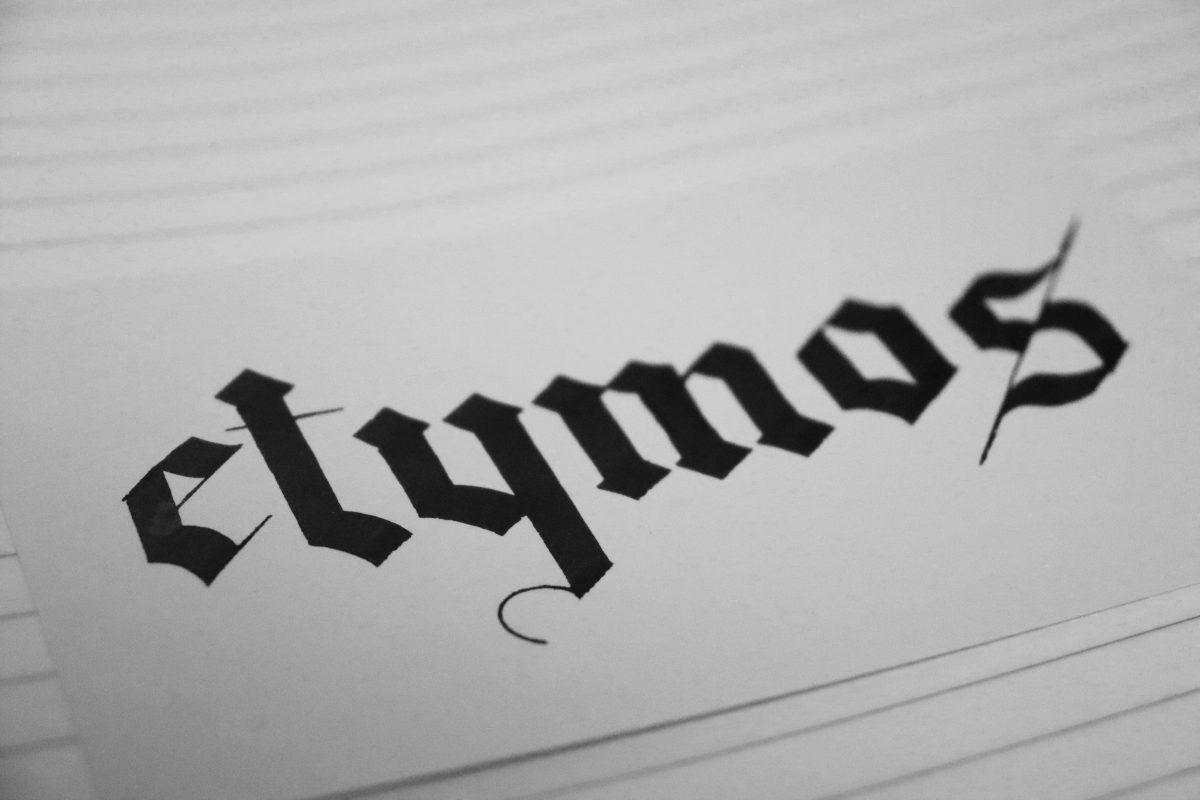A few weeks ago, I came across the word ‘mythopoeic’. What a nice-looking word! Dictionaries give its meaning as ‘pertaining to the creation of myths’, but I sense it has a true meaning that is a bit subtler than that.
It comes from Greek mythos – obviously – meaning ‘myth’, ‘story’, ‘thought’, ‘discourse’, and Greek poiein, meaning ‘to create’ – from which we also get the word ‘poet’. Who’d’ve thought – the word ‘poet’ literally just means ‘one who creates’. (I guess that means we’re all poets now. Oh dear.)
From ‘mythopoeic’ we can get to ‘mythopoeia’, which is ‘the creation of myths’. It didn’t occur to me, at first, that there were other words ending with ‘-poeia’, but there are, and these form an etymological family of words all pertaining to creation.
As always with this series of posts, first I will list words ending with this suffix that I’ve found in dictionaries. (It may not be an exhaustive list.)
| Word | Meaning |
| pharmacopoeia | ‘the making of medicine’ |
| logopoeia | The creation of words – not in the sense of coining new words, but in the sense that a word is formed over time by its usage in different contexts, and the associations it gains through its usages. (This word may be worth a blog post of its own.) |
| phanopoeia | The creation of images – particularly within the mind, the visual imagination. |
| melopoeia | The creation of sounds – again particularly in the sense of writing that builds the idea of a sound in the mind. |
| prosopopoeia | The putting of words into the mouths of others – what a great word. (A complex etymology.) |
| onomatopoeia | The famous one – ‘the formation of words or names by imitation of natural sounds’. |
Most of these ‘-poeia’ words are quite grand, so perhaps any new words made with the ending should be similarly grand. Below I’ve thrown together some new words that could be made with this ending, but they’re a bit literal.
| Word | Meaning | Adjectival Form |
| geopoeia | ‘the creation of the Earth’ | geopoeic |
| rhabdopoeia | ‘the creation of wands / staffs’ – a great one for fantasy – a person who creates wands or staffs (like Ollivander) could be a ‘rhabdopoet’ – particularly in reference to the magical, rather than mechanical, aspects of creating a wand | rhabdopoeic |
| astropoeia | ‘the creation of stars’ – for extra grandeur of concept, this could be used for metaphorical stars – i.e., celebrities – ‘the process by which a person becomes a celebrity and the crafting of their public image’ (although perhaps this rather removes grandeur than adds it) | astropoeic |
| oneiropoeia | ‘the creation of dreams’ – again, could be used for literal dreams, or this word could be used to refer to how aspirations are instilled in the people of a given society – i.e., the process by which the American Dream is instilled | oneiropoeic |
| arithmopoeia | ‘the creation of numbers’ – could be used to refer to the process by which mathematicians deduce that a different class of number (such as imaginary and complex numbers) is needed | arithmopoeic |
| chronopoeia | ‘the creation of time’ – could be used to refer to how different events and activities create the perception of time in the mind – i.e., a very boring activity that makes time go slow is chronopoeic | chronopoeic |
| sophopoeia | ‘the creation of wisdom’ – could be used to refer to the methods and environments that create wisdom within those going through education | sophopoeic |
| alethopoeia | ‘the creation of truth’ – could be used to refer to how governmental and media institutions try to ‘create’ a ‘truth’ that may well be different from actual, objective truth (although perhaps this is a rather grim usage of such a grand word) | alethopoeic |
